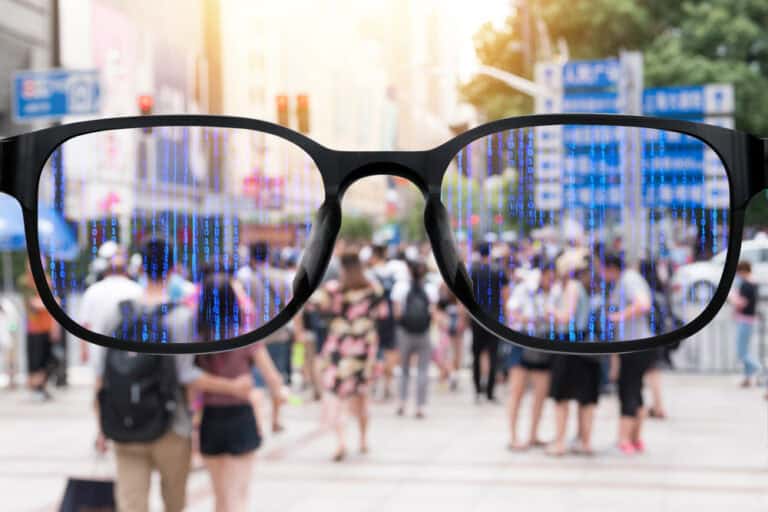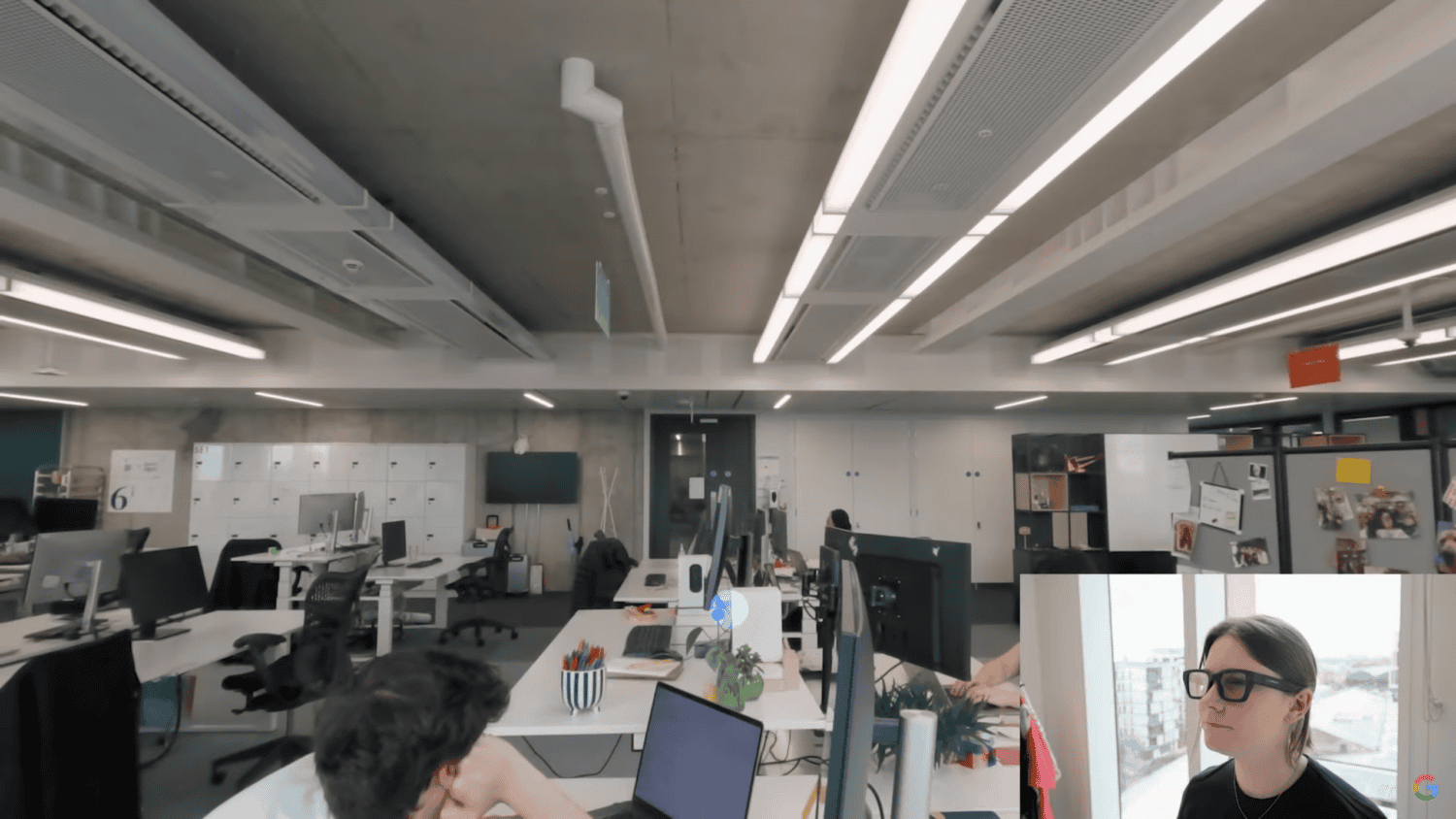Google is hinting at a return of Google Glass. At least, with the announcement of Project Astra, the company suddenly showed off augmented reality (AR) glasses again. Why is a resurgence taking place for Google’s AR project?
Google Glass debuted in 2015 but was soon discontinued. For professional purposes, however, the AR glasses remained available until last year. Microsoft’s considerably heftier HoloLens, which has always focused solely on professional applications, was a lot more successful and is used, for example, to assist in aircraft construction.
The idea of AR is to put a digital layer on top of the physical world. For example, with Google Glass, the end user was able to simply see everyday reality, but could also see notifications and other UI elements through a tiny projector on the edge of the glasses.
MR, AR, VR, spatial computing …
Nowadays, the AR/VR/MR market is back in full swing. Microsoft put a stop to the languishing Windows Mixed Reality last year, while Apple and Meta are bringing new “spatial computing” products to the fore. The nomenclature is still unclear: MR, AR, VR, spatial computing and more are all a jumbled mess. What we are talking about here is a visual experience where, as a user, you do not completely “disappear” into a digital reality, but digital elements are an addition to that reality. That, thankfully, is still usually just called AR. However, Apple would call it ‘spatial computing’ regardless of how much the user can still see of the outside world.
The AR glasses were not explicitly announced by Google at its own I/O event this week. However, it was clearly visible in a pre-cut video announcing Project Astra (not to be confused with NetApp‘s version) This turns Google’s AI suite into a comprehensive assistance tool that can watch along with your smartphone’s camera. Whether it’s text, image or sound, Google has Gemini’s models ready to enrich the user experience with AI.
Tip: Google adds Gemini features to Google Photos app with Ask Photos
That could be in apps like Photos with “Ask Photos” or with the well-known search engine, but thus also to recognize objects or analyze code through camera images. Google DeepMind chief Demis Hassabis refers to a “universal assistant,” similar to what the Star Trek Communicator or the AI voice from the movie “Her” represents. “You’ll get used to the fact that it’s always there when you need it,” he said.
Glasses just a hint
Google purposefully showcased Project Astra primarily through smartphones. Still, Hassabis’ explanation and the AR glasses cameo suggest that more plans are on the way. A revival of Google Glass would make sense to realize the idea of an omnipresent assistant, as it’ll be able to track exactly what the user is seeing. However, potential customers will need to be convinced of its viability. This partly depends on an attractive price, something the Apple Vision Pro glasses, for example, do not offer. That VR headset costs a shocking $3,500 and is coming to Europe soon.
The other question, perhaps a trickier one to answer: are users really waiting for this? Vendors are trying to make AI models as powerful as possible on smartphones so that the AI functionality does not create a privacy problem by sending personal data to the cloud. Should Google be able to watch along, many potential customers will disregard any AR glasses out of hand. If everything can be run locally with the features presented, then Google Glass might have a successor that can succeed almost 10 years after the original’s release.
Also read: Apple Vision Pro likely to be available outside U.S. soon

